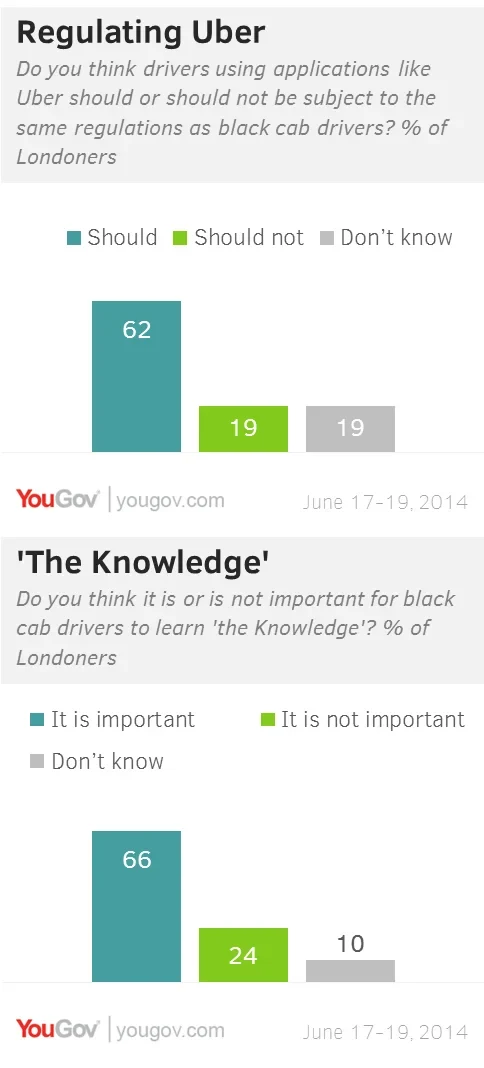62% of Londoners say vehicles operating using the Uber mobile app should be subject to the same regulation as black cabs – and there is widespread pride in ‘the Knowledge’
Thousands of taxi drivers brought an area of central London to a standstill last week to protest against the mobile application, Uber. The application allows users to request a vehicle directly to their location at the press of a button, with the fare being calculated and debited from a bank account automatically via a smartphone. Black cab drivers are angry with the service because, although it is virtually identical to a taxi, the cars do not technically have a metre and so are excused from regulations.

A new YouGov survey of Londoners finds that by 50-30% the taxi driver’s protest is supported, and by 62-19% Londoners think vehicles using applications like Uber should be subject to the same regulations as black cab drivers.
Part of the frustration with Uber is that while taxi drivers go through an extensive training course called ‘the Knowledge’, where drivers must learn 320 routes covering 25,000 streets, as well as important buildings and points of interest, Uber drivers can come straight into London with a car and GPS.
While there is an argument that in a technological age there is no need to know routes when satellites can do the job, only 24% of Londoners favour this viewpoint. Most Londoners (66%), in contrast, say that black cab drivers should be able to decide routes immediately and offer customers a detailed knowledge of London.
Boris Johnson has expressed sympathy for London’s taxi drivers, although he has said it would be “difficult” for him to ban Uber: "We've gone to the high court to get a ruling on this, and the issue is basically: is the driver's mobile in the cab equivalent to a taxi meter? I can see why m'learned friends might think that it is, because it's receiving data about, or it's calculating, the distance and time and the fare. And there are other lawyers who say that it isn't, and that was the advice of the counsel to TfL. And so we've got a legal problem."










